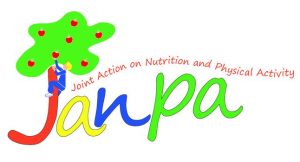Janpa
Janpa is a European joint action trying to stop the augmentation of children and teenager’s obesity.

France (Anses, General Directorate of Health, Ministry of Solidarity and Health) coordinated between September 2015 and November 2017 the European joint action JANPA which refers to nutrition and physic activity, and whose goal was helping to stop the raise of children and teenager’s obesity. JANPA allowed 26 participating countries to exchange their implemented practices to fight against obesity and identify which actions are the most effective. Moreover, the Agency was particularly involved as a leader for the section concerning nutritional data that was aiming to share good practices in terms of collecting food data, and their utilization by stakeholders as part of nutritional policies.
4 technical work packages (WP) produced concreate results:
- As part of the WP5 “Nutritional information monitoring and food reformulation promotion”, headed by Anses with the contribution of INRAE and 10 other European partners which represented 8 countries, the necessity to improve the nutritional information to contribute to better purchasing decisions from consumers and to acquire knowledge about the variety of food nutrient has been recognized. The French model Oqali has been tested in Romania and Austria on two food categories consumed by children: breakfast cereals and nonalcoholic beverages. Both studies headed as part of JANPA showed that Oqali is an effective and cheap implement to collect comparable information about nutrition situation in and between countries. Based on these knowledge, common goals for food reformulation and their monitoring by public instituting can be headed.
- As part of WP4 “economic justification for actions aiming to reduce children’s obesity” headed by Ireland, future costs for children’s obesity have been estimated at country level thanks to a model which take care of health and societal costs related to premature mortality and the loss of productivity. These estimates could be essential at a country level to promote nutritional policies when government decisions must be done.
- The WP6 works “healthy environments through integrated approaches”, headed by Hungary and the WP7 works “early interventions”, headed by Finland allowed to define criteria to choose the best practices for early interventions and actions at school since kindergarten. A strict selection of these practices has been done as part of participating countries. Some recommendations have been formulated to build, implement, make sustainable a better practice and facilitate its transferability. The best practices identified as part of JANPA have also been included in the “Best practices portal” of the Directorate General “Health and Food Safety” of the European Commission (DG SANTE).
JANPA results were presented and discussed as part of the final conference of the joint action that took place in Paris, at the Ministry of Solidarity and Health on 24th November 2017 with M. Vytenis Andriukaitis, European Commissioner for Health and Food Safety and Agnes Buzin, Minister of Solidarity and Health. The conference gathered more than 250 people, from 30 countries (public health professionals, nutrition and physic activity professionals and consumers protection association…). It was closed by Roger Genet, Managing Director of Anses who insisted on the importance of the success of these works headed as part of JANPA, and the necessity to find together, at a country level, European and International, mechanism which allow the development of initiatives tested by JANPA.
A final file (French document) presents in detail JANPA and its principal results. Its conclusions and recommendations are exposed in the following document : Janpa position paper
